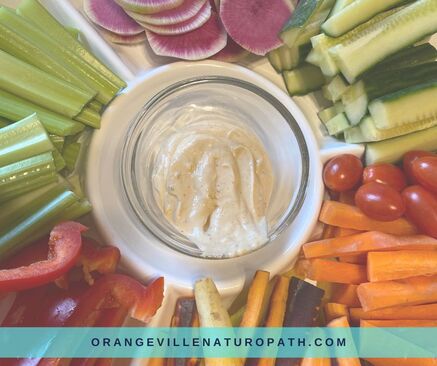Hints that your cardiovascular system needs support
- Waist circumference
- when metabolic health is dialed-in your heart is happier
- keep waist measurement less then 40 inches for men, and less than 35 inches for women (or ideally, less than half your height in inches... so if you are 60 inches tall waist measurement under 30) - Blood work indicators - keep a binder with all your results to compare over time
- HbA1c, fasting blood sugar & insulin
- lipids, lipoprotein a
- fibrinogen, c-reactive protein, homocysteine
- complete blood count (cbc)
- ferritin
- thyroid
- reproductive hormones like estrogen & testosterone
- cortisol - Blood pressure
- less than 120/80 mmHg is ideal
- read more here
- it's helpful to establish your own baselines so that you know when something changes, keep in mind that if your blood pressure has always been 100/60 mmHg then going to 120/80 could be significant for you even though the number is "normal"
- also, having your own monitor can help to lessen the impact of 'white coat syndrome' - Other tests: ECG, stress tests, 24 hour monitors, ultrasounds, MRIs can be great too but are not routinely done in Canada
- Emotional wellbeing & stress
- feeling stressed or experiencing grief or heartbreak can also mean support for the heart is indicated, or even something like a physical stressor in your lifestyle like shift work - Recent dental work or other medical interventions
- Symptoms like: palpitations, chest heaviness, shortness of breath, low energy, pain in one leg or arm, swelling of hands or feet
- of course the cardiovascular system isn't the only reason for these symptoms, it's just something to keep in mind - for example, palpitations could also be triggered by thyroid imbalance, low iron or other minerals, and anxiety
With fewer people having access to in person care with family doctors/nurse practitioners/physicians assistants (if you have a family doctor's office at all), the narrowing of physical exams, and the shift towards complaint based assessments only, the opportunity to catch early signs can be missed. This is why knowing your own numbers, knowing what feels right in your body (and what doesn't), and taking responsibility for your own health is so important.
- Sunlight
- Movement
- Hydration
- Breathing
- Sleep routine
- Eating whole & unprocessed foods, including foods high in magnesium and antioxidants
- Find joy and experience fun & connection
- Create routines that manage stress levels daily, balance the vagus nerve
- Avoid alcohol & smoking
- Time in nature and away from electrical signals
Read more about unique ways to support a healthy cardiovascular system here.
Botanicals & Supplements to Consider (depending on the imbalance)
- omega 3 fish oil
- magnesium
- vitamin C
- vitamin D
- coenzyme Q10 - especially if taking a statin
- hawthorn
- garlic
- quercetin, resveratrol, grapeseed or astaxanthin
- berberine
- nattokinase
- taurine
- carnitine
- rose water or oil
Not everyone looks for support before there's a problem, though. The reality is that oftentimes it's a health scare that motivates lifestyle change. (I have worked with people who have experienced heart surgeries, aneurysms, hypertension, strokes & mini strokes, clots, and heart attacks.) For those people, we often have to be more rigid in our protocols and potentially choose remedies that help offset the side effects of medications. It's a good thing that our bodies are excellent healers!
I hope that you have a beautiful week,
Dr Christa


 RSS Feed
RSS Feed